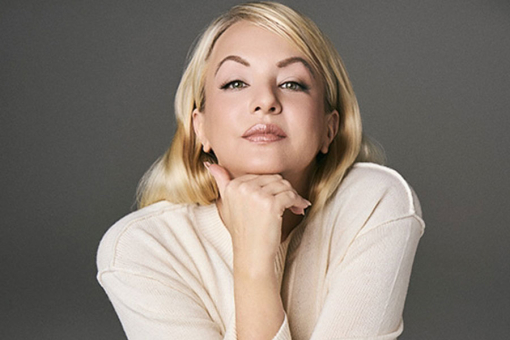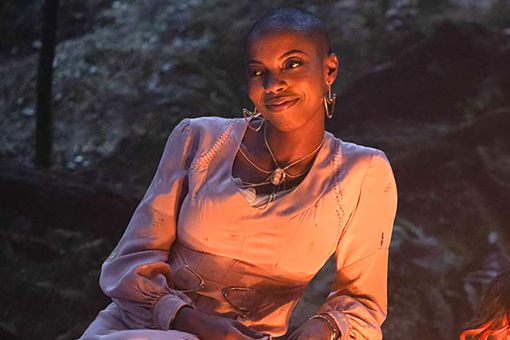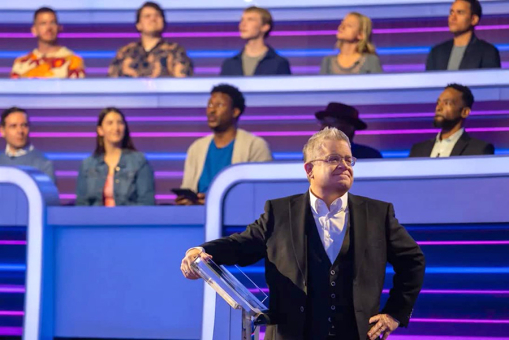Decades before the Marvel Cinematic Universe became a behemoth of superpowered film and TV projects, mutant-loving Millennials were glued to their televisions every Saturday morning to follow the X-Men’s latest adventures. For five seasons (1992–97), the ragtag team of X-Men: The Animated Series defended mankind against evil villains while squaring off against a society that hates and fears them for their birthright. In March, X-Men ’97 premiered on Disney+ as that show’s sequel series, seamlessly picking up where its predecessor left off.
Five X-Men ’97 voice cast members, some returning and some new to their roles, sat down with emmy editor Stephan Horbelt to discuss the animated series’ well-received return.
Television Academy: First things first, major congratulations are clearly in order, given the response to X-Men '97. Four million views in the show’s first five days, critical acclaim and a near-perfect Rotten Tomatoes score. What was the show’s launch like for each of you?
Jennifer Hale (Jean Grey): It's blown my mind, honestly. I've never seen a studio and a distribution platform invest in a show the way I've seen Disney and Marvel invest in this, and it's thrilling. It's exciting to me, because I have a particularly warm place in my heart for the entire voice acting community. These are the most talented individuals you will ever meet in your life.
Cal Dodd (Wolverine): I'm just blown away by the whole thing — that the show has actually returned. The first time we saw it, aside from doing ADR, was in Hollywood at the premiere, and well, I almost peed my pants. The screams whenever anyone's character came on-screen! I’m just so happy for the fans. It was weird getting back into it after 27 years, but it has been so worth it.
J.P. Karliak (Morph): It's been really incredible, and coming into this as the nonbinary character, I was expecting trolling. What I wasn't expecting was the backlash to the backlash, and how many people have been so positive and defensive of not only my character but also just the X-Men in general, and what the X-Men was founded on in its comic origins, and its activism from the beginning. And, I mean, seeing it at the premiere — I knew it would be good, but I didn't know it would be prestige adult animation. It’s incredible.
In terms of timeline, the show takes us back to 1997, but the stories feel so timely. What were your initial reactions to seeing X-Men ‘97 on the page?
Ray Chase (Cyclops): I've never worked on something where the writing and directing was so assiduously done. I recorded that first episode five different times, with lots of rewrites, and with lots of very micro changes to every single line, making sure that it played well when hearing all the voice cast together. They worked on this so carefully and passionately that it blew me away. It’s really well-written, but what really impressed me was the passion of the showrunners, directors and writers.
Alison Sealy-Smith (Storm): I'm a theater actor, so I deal with scripts all the time, and I was hugely impressed by the precision with which the story was plotted. Like Ray, I went back in to record quite a few times. I don't even want to tell you how many times we recorded “I am Storm, mistress of the elements!” When you're the character, and when you've already seen a gazillion scripts and your reaction to what is on the page is, “Whoa, I want a chance to get into the studio. I love this story,” then you're on to something good. And it was such a good team and such a caring team.
The show really amps up the allegorical message that's always been there with the X-Men. Were any of you drawn to working on this project because of that? Because of the meaningful storytelling, and the show's positive message?
Hale: I'm always thrilled when something comes across my screen and I get to read for it, but to get to participate in this kind of stand for humanity, and for the best in ourselves, and this kind of truth-telling about the not-so-best in ourselves in this beautiful way and with this beautiful team — like, yay!
Dodd: The story really stands up today, and this series is picking up right where we left off. And they're being so true to the comic books. With some of the criticism, where people have said, “Well, it's very woke.” Woke? The original meaning of “woke” is an awareness of societal injustices, and hello, the X-Men have been like that since the get-go. It’s like calling water wet.
J.P., you mentioned the headlines your character made ahead of the show's premiere. Were there discussions about the character’s gender identity before your work on the show started?
Karliak: It was made clear in the audition that Morph was going to be nonbinary, so I knew that ahead of time. I identify so much with Morph on so many levels, as someone who’s genderqueer and as somebody who struggled with their gender identity in the '90s. Yes, the creators made the decision outside of the show to say that Morph is nonbinary, but that's not a term we had in the '90s. We didn't have they/them pronouns in the '90s. That didn't come along until the early 2000s. Had I had that terminology, it would have made so much difference to me.
Many of you came to X-Men ’97 from different directions. Cal and Alison, you're returning from the original series. Ray and J.P., you're new to X-Men '97. Jennifer, you're new to X-Men '97, but you previously voiced your same character on a different Marvel series. So, I imagine the prep work for each of you looked a bit different.
Dodd: To start, I listened to as many episodes as I could. I watched the original series, just to make sure the timbre was right, and he was in the right area. And I just laughed the whole time, because unbeknownst to him, Wolverine had funny lines. But I was ready, because he’s been in my head for 27 years.
Sealy-Smith: I don't want to admit this, because as a professional you want to say that you did a whole lot of research, but I've been working on something personally and professionally that is about trust. I don't have a whole lot of it. I tend to work very, very hard at what I do, and each time I land in something, it's as though I've got something to prove all over again. I’ve been really working over the last decade or so to let go of that, and I was worried because I've been off the professional scene for so long. So, I was a little bit worried, but I watched some episodes. I didn't even watch too many, because I wanted to go in there fresh and look at this script and look at the relationships and find the particular arc of where this woman was. I wanted to be able to trust the actor I am now, and not try to capture the 30-something-year-old me, because I knew I couldn't go back there, so what was the point? I listened so I could find the timbre and figure out where she sat in my chest. I did a lot of vocal work to get my instrument back where I wanted it to be in front of a microphone. And after that, I let go, and I flew. I depended on the script and on direction, and on the fact that I've been doing this for a long, long time.
Karliak: For me, a lot of it really came in preparation for the audition, not necessarily the part itself. A lot of us have played legacy characters and have spent time over the course of our career preparing in different ways for them. So much of that is dictated by how much leeway production wants to give you on a character: whether they want an exact sound-alike, or whether they want something that feels like the character. For Morph — with all due respect to Ron Rubin's amazing portrayal from the original series — because he was in not as many episodes, there were fewer specific memories attached to the voice, and they gave me a little wiggle room to play with. The giggle had to be there, because Morph has a very specific giggle, but other than that, there was room to play. Because I connected with Morph on multiple levels as a person — and with their witty sense of humor — I felt like, “I'm just going to do me. I'm just going to use my natural speaking voice. I don't need to put on a character voice for this,” so I let that ground him, since there was going to be so many other things going on with him.
Chase: For me, I was the wrong kind of nerd. I didn’t grow up with this show. I was watching anime and playing video games. So, I was coming from my back foot, having to learn about the X-Men. But there were some fantastic resources, like all the episodes streaming on Disney+. I got to watch every single one of them. And then I found a book by Eric and Julia Lewald, the show's original showrunners, called Previously on X-Men, which is just a fantastically written and researched tome that has so many stories and interviews and documentation. But most importantly it shows how groundbreaking the show was, and it got me to realize that this wasn't just any old superhero cartoon. This one had a lot of meaning and importance in the history of Western animation. So, I used that as a grounding tool. And then the other part of it was honoring Norm Spencer, who originated the role [he sadly died in 2020, as did David Hemblen, the show’s original Magneto], and finding podcasts and listening to him and getting to know him as a person so I could play Cyclops the way I think he would have wanted. So, I did quite a bit of research for this one.
Hale: I really wanted to honor Catherine Disher's work, and that was the requirement. That was the mandate: to really nail that 1990s sound. And then, it's a personal thing that's very important to me: to connect to audiences in ways that actually work for them. Today's audiences are more sophisticated. They require authenticity and a level of personal honesty when you're playing a role. In the '90s, it was a different deal; we were a little looser with it, a little more presentational, and it's been fun to ride the wave of evolution. But also, like Alison was saying, trust has become a really important part of my toolbox. The hyper-achiever in me wants to nail it, which is straight ego, but ego doesn't give the gifts the audience wants. It's about dropping in and trusting, and everything's about the writing. When you've got writing this good, you just get out of the way. You do your homework. You show up. And, yeah, I went through several iterations where we took the original with its style of speaking, and then we evolved it back into an amalgam that respected that and brought in authenticity.
Did you feel like you were still able to make the character your own? Or was that even a priority, given that you were taking on the mantle of a pre-existing character?
Chase: This was an interesting role, because I booked it as a strict voice and performance match — exactly his style, exactly his tone. But as we were going through the episodes, I think one of the reasons why we recorded it five times was figuring out a balance. Should he sound exactly like he used to sound? Or should we maybe take a step back, because these are scenes that the original-run Cyclops didn't really have? We didn't get to see these more grounded and intense things from Cyclops [in the show’s original run]. I think we brought the performance down a little bit in intensity, finding a medium. This is how you remember him sounding, but it isn't exactly how he sounded.
Tell me a bit about the pressure and responsibility that comes with such a beloved project. Not only is there 60 years of comic book legacy, but as I’m sure you’re all very aware by now, the fans of this project are intense.
Sealy-Smith: A huge responsibility. I had just recently started doing the Comic-Cons, and that's an intensely surreal experience. So I did walk into the studio this time with a much heavier sense of responsibility than I felt in the '90s. Back then, it was more about me finding myself and where I sat as a performer. This time, it was all about the fans. But I know that this character lives inside me. I think I understand her a hell of a lot better than I did back when I was in my 30s, so I went into the studio with an equal measure of terror, because you have this awesome responsibility, and a wonderful relaxed assurance, because I was pretty sure that we were going to get this one.
Dodd: There was pressure initially, because they asked me to audition again. In my head, I was going, “You're asking me to do the audition for me?” I just know Wolverine inside and out, and I’m very protective of him. I always have been, because he's so confused and tender inside, and just terrible with women. He's cranky, because he's a loner, but he wants to be wanted and belong. I know exactly who he is, and I just love him, like a brother. Like myself.
Karliak: As somebody whose entire career is playing legacy characters, from Wile E. Coyote on, that's the majority of what I do. I learned early on, especially when you voice a Looney Tunes character, that you're not going to please everybody. I adopted pretty quickly a version of the mantra “I would rather be 10 people's very favorite performance than 100 people's tenth favorite performance.” I don't want to sound dismissive to the fan base in any respect — of course I care what they think. But at the same time, I also recognize that everybody's going to have an opinion, especially with this character, being who he is. If my character resonates with kids who are looking to a queer superhero to feel good about themselves, and I piss off a whole bunch of other people, oh well.
How has the work of voicing animated characters changed since the early-to mid-'90s when the original X-Men animated series was airing?
Karliak: Zoom!
Hale: Aside from the obvious technical setups and the pandemic that we all went through — that mini-apocalypse we all survived — I've seen huge evolutions in acting. I've had the great privilege to play several different Marvel roles, and I've done a fair bit of time in games as well as animation, and it's a similar evolution. In the '90s, we were still doing a bit of presentational acting, with a little bit of a put-on, just to push it a little bit, because the visuals were where they were. But technology has advanced so much, and I believe that we are now at the point where thought registers on the mic. You can just show up and have a lived experience, and it transmits.
Sealy-Smith: Our playing style in the ‘90s was more presentational than introverted, more formal than casual. This time, with X-Men ’97, Storm’s humanity shines through for me in a completely different way. I can relax, and she's there. You saw it in the first two episodes, where I go to places in terms of her loss [of her mutant powers], and her identity being stripped away. The naked vulnerability of that is something that I don't know I could have played as well in my 30s, and the style now allows me to do that a bit more. While I can't speak to the evolution of the genre or the style, I can speak to how it has affected the way I play it, and it's just more personal and more human this time around.
Marvel is such a different company now than it was in the '90s, and the original X-Men animated series was part of the spark that has since become the Marvel Cinematic Universe. Given the MCU’s interconnectedness, where the characters you all voice could pop up in other projects, is there interest in exploring that?
Hale: I would show up in anything Marvel — anytime, anywhere. I love this universe. I was just thinking about how grateful I am to Marvel, because, look, I am not 20. Marvel is kicking ageism and those old ways of thinking to the curb. I'm so excited about that, because we have so much to offer.
Chase: How cool would it be if they bring Cyclops back, but it's the animated version only, even in live-action projects? Anytime Scott Summers shows up, he's always 2D. That would be my vote. Let's do it. I’d be happy to show up anywhere, especially if they ever bring back [the video game] Marvel vs. Capcom. I would love to shout some optic blasts for everybody out there.
X-Men '97 is streaming now on Disney+.











